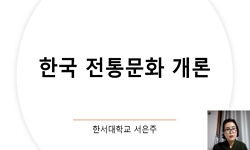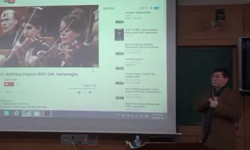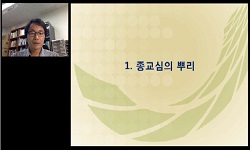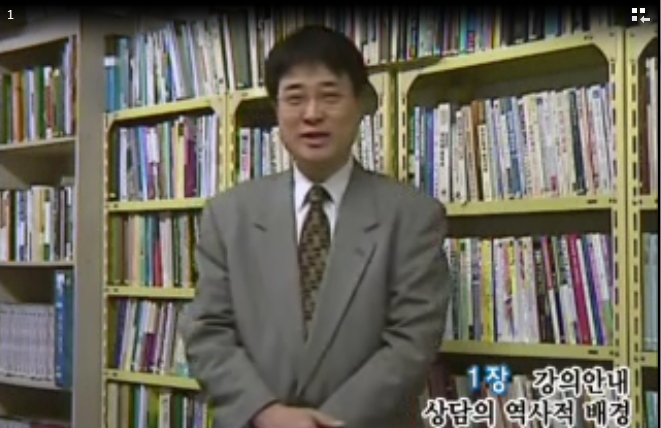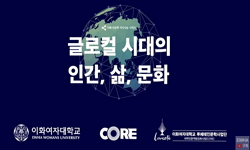Objectives This study was conducted to examine the characteristics of spirituality in Korean traditional culture and to apply these to the basic concepts of psychiatry. Methods The author interpreted books concerning traditional culture, including God...
http://chineseinput.net/에서 pinyin(병음)방식으로 중국어를 변환할 수 있습니다.
변환된 중국어를 복사하여 사용하시면 됩니다.
- 中文 을 입력하시려면 zhongwen을 입력하시고 space를누르시면됩니다.
- 北京 을 입력하시려면 beijing을 입력하시고 space를 누르시면 됩니다.
부가정보
다국어 초록 (Multilingual Abstract)
This study was conducted to examine the characteristics of spirituality in Korean traditional culture and to apply these to the basic concepts of psychiatry.
Methods
The author interpreted books concerning traditional culture, including God-concept, death-concept, world-view of afterlife, Shamanistic thinking, traditional religion, as well as traditional culture in general, such as play, music, art, dance, literature, pottery, architecture, naming method, authentic recordings (Shillock), and Hangul.
Results
The common characteristic of spirituality reflected in the reviewed materials was ‘Gegensatzvereinigung’ which means the unification of opposing concepts. The unity of the Western and Eastern cultures, the old and the new, death and life, the rich and the poor, and the concrete and the abstract are examples of ‘Gegensatzvereinigung.’
Conclusion
The ultimate goal of psychiatric treatment is to maintain the harmonious interaction among thinking, affect and behavior. Furthermore, the most harmonious interaction is to unify into one. Thus, the spirituality of traditional culture can be applied to psychiatric treatment.
Objectives
This study was conducted to examine the characteristics of spirituality in Korean traditional culture and to apply these to the basic concepts of psychiatry.
Methods
The author interpreted books concerning traditional culture, including God-concept, death-concept, world-view of afterlife, Shamanistic thinking, traditional religion, as well as traditional culture in general, such as play, music, art, dance, literature, pottery, architecture, naming method, authentic recordings (Shillock), and Hangul.
Results
The common characteristic of spirituality reflected in the reviewed materials was ‘Gegensatzvereinigung’ which means the unification of opposing concepts. The unity of the Western and Eastern cultures, the old and the new, death and life, the rich and the poor, and the concrete and the abstract are examples of ‘Gegensatzvereinigung.’
Conclusion
The ultimate goal of psychiatric treatment is to maintain the harmonious interaction among thinking, affect and behavior. Furthermore, the most harmonious interaction is to unify into one. Thus, the spirituality of traditional culture can be applied to psychiatric treatment.
참고문헌 (Reference)
1 조수철, "정신의학 영역에서의 통섭의 개념" 대한신경정신의학회 51 (51): 349-358, 2012
2 Choi DH, "What is Pansori?" Editor 45-, 1994
3 Kim KW, "What do we study in the future?" Saenggakyui Namu 15-35, 2009
4 Lee BK., "Understanding of Korean traditional culture" Minsokwon 142-145, 2007
5 Lee BK, "Understanding of Korean traditional culture" Minsokwon 154-175, 2007
6 Lee BK, "Understanding of Korean traditional culture" Minsokwon 28-46, 2007
7 Lee BK, "Understanding of Korean traditional culture" Minsokwon 105-108, 2007
8 Lee BK, "Understanding of Korean traditional culture" Minsokwon 85-86, 2007
9 Lee BK, "Understanding of Korean traditional culture" Minsokwon 70-, 2007
10 Lee BK., "Understanding of Korean traditional culture" Minsokwon 73-, 2007
1 조수철, "정신의학 영역에서의 통섭의 개념" 대한신경정신의학회 51 (51): 349-358, 2012
2 Choi DH, "What is Pansori?" Editor 45-, 1994
3 Kim KW, "What do we study in the future?" Saenggakyui Namu 15-35, 2009
4 Lee BK., "Understanding of Korean traditional culture" Minsokwon 142-145, 2007
5 Lee BK, "Understanding of Korean traditional culture" Minsokwon 154-175, 2007
6 Lee BK, "Understanding of Korean traditional culture" Minsokwon 28-46, 2007
7 Lee BK, "Understanding of Korean traditional culture" Minsokwon 105-108, 2007
8 Lee BK, "Understanding of Korean traditional culture" Minsokwon 85-86, 2007
9 Lee BK, "Understanding of Korean traditional culture" Minsokwon 70-, 2007
10 Lee BK., "Understanding of Korean traditional culture" Minsokwon 73-, 2007
11 Lee BK, "Understanding of Korean traditional culture" Minsokwon 72-, 2007
12 Lee BK., "Understanding of Korean traditional culture" Minsokwon 71-72, 2007
13 Lee BK, "Understanding of Korean traditional culture" Minsokwon 71-, 2007
14 Lee BK., "Understanding of Korean traditional culture" Minsokwon 56-60, 2007
15 Lee BK., "Understanding of Korean traditional culture" Minsokwon 149-153, 2007
16 Lee BK, "Understanding of Korean traditional culture" Minsokwon 24-27, 2007
17 Hahn DS., "The oriental concept of freedom" 1968
18 Rhi BY, "Shamanistic treatment of death-spirit" 13 : 79-94, 1970
19 Kim KI., "Psychoanalytic interpretation of Korean traditional culture" Kyomunsa 196-, 1991
20 Kim KI., "Psychoanalytic interpretation of Korean traditional culture" Kyomunsa 394-, 1991
21 Kim KI., "Psychoanalytic interpretation of Korean traditional culture" Kyomunsa 396-, 1991
22 Kim KI, "Psychoanalytic interpretation of Korean traditional culture" Kyomunsa 397-, 1991
23 Kim KI, "Psychoanalytic interpretation of Korean traditional culture" Kyomunsa 197-, 1991
24 Kim KI., "Psychoanalytic interpretation of Korean traditional culture" Kyomunsa 396-398, 1991
25 Hong IS., "Korean traditional culture and contemporary opinion" Korea University Press 58-60, 1996
26 Hong IS, "Korean traditional culture and contemporary opinion" Korea University Press 32-33, 1996
27 Hong IS., "Korean traditional culture and contemporary opinion" Korea University Press 183-, 1996
28 Hong IS, "Korean traditional culture and contemporary opinion" Korea University Press 36-38, 1996
29 Choi JC, "Consilience: the unity of knowledge" Science Books 11-12, 2005
30 Kim BG, "A sketchbook tour (1)" Hyohyungchulpan 76-92, 2006
31 Kim BG., "A sketchbook tour (1)" Hyohyungchulpan 295-306, 2006
32 Kim BG, "A sketchbook tour (1)" Hyohyungchulpan 328-334, 2006
33 Kim BG, "A sketchbook tour (1)" Hyohyungchulpan 249-251, 2006
34 Kim BG, "A sketchbook tour (1)" Hyohyungchulpan 209-218, 2006
35 Kim BG, "A sketchbook tour (1)" Hyohyungchulpan 29-30, 2006
36 Kim BG, "A sketchbook tour (1)" Hyohyungchulpan 159-, 2006
37 Kim BG., "A sketchbook tour (1)" Hyohyungchulpan 189-202, 2006
38 Kim BG., "A sketchbook tour (1)" Hyohyungchulpan 57-74, 2006
39 Kim BG., "A sketchbook tour (1)" Hyohyungchulpan 91-104, 2006
40 Kim BG., "A sketchbook tour (1)" Hyohyungchulpan 256-270, 2006
41 Kim BG, "A sketchbook tour (1)" Hyohyungchulpan 334-345, 2006
42 Kim BG, "A sketchbook tour (1)" Hyohyungchulpan 93-106, 2006
43 Kim BG, "A sketchbook tour (1)" Hyohyungchulpan 248-249, 2006
44 Lee BK, "24) Lee BK. Understanding of Korean traditional culture" Minsokwon 74-81, 2007
동일학술지(권/호) 다른 논문
-
- 대한신경정신의학회
- 서은현
- 2018
- KCI등재
-
알츠하이머병 환자의 뇌 영상 검사의 최신 지견과 임상 적용 방법
- 대한신경정신의학회
- 강동우
- 2018
- KCI등재
-
경도인지장애 환자들을 대상으로 한 인지중재치료의 임상 실제
- 대한신경정신의학회
- 유승호
- 2018
- KCI등재
-
- 대한신경정신의학회
- 김성윤
- 2018
- KCI등재
분석정보
인용정보 인용지수 설명보기
학술지 이력
| 연월일 | 이력구분 | 이력상세 | 등재구분 |
|---|---|---|---|
| 2023 | 평가예정 | 재인증평가 신청대상 (재인증) | |
| 2020-01-01 | 평가 | 등재학술지 선정 (재인증) |  |
| 2018-01-01 | 평가 | 등재후보학술지 선정 (신규평가) |  |
| 2016-12-01 | 평가 | 등재후보 탈락 (계속평가) | |
| 2015-12-01 | 평가 | 등재후보로 하락 (기타) |  |
| 2011-01-01 | 평가 | 등재학술지 유지 (등재유지) |  |
| 2009-01-01 | 평가 | 등재학술지 유지 (등재유지) |  |
| 2006-01-01 | 평가 | 등재학술지 선정 (등재후보2차) |  |
| 2005-01-01 | 평가 | 등재후보 1차 PASS (등재후보1차) |  |
| 2003-01-01 | 평가 | 등재후보학술지 선정 (신규평가) |  |




 KCI
KCI 스콜라
스콜라
